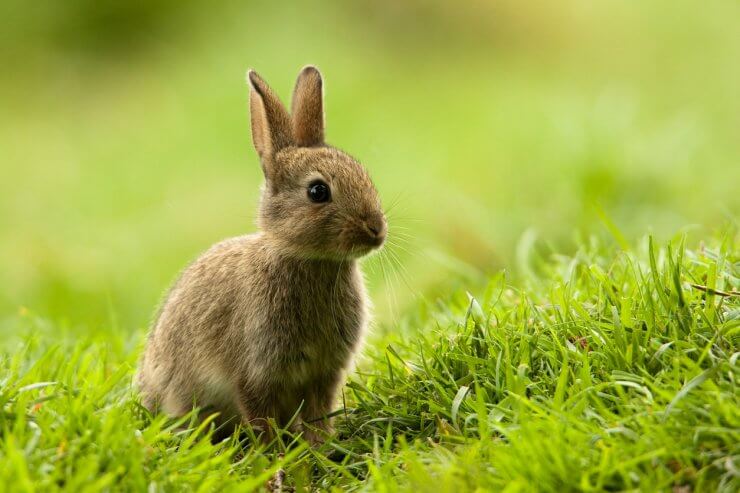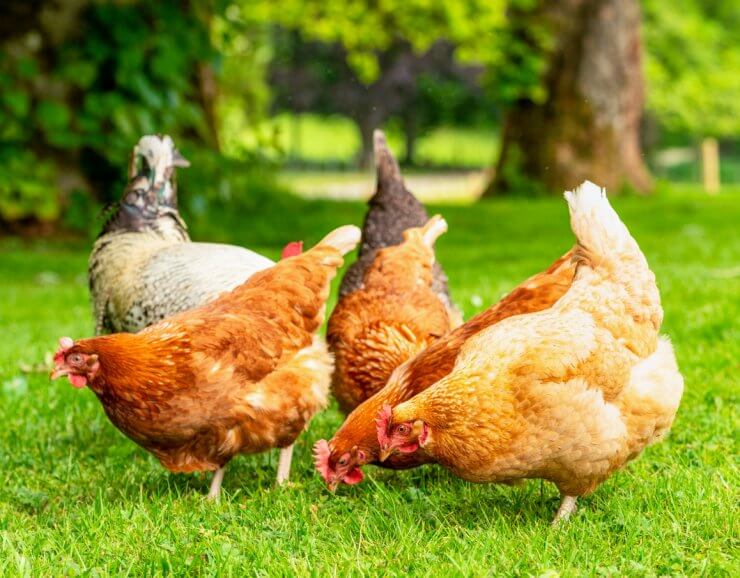
My summer cookouts are not for the faint of heart. It’s not that there’s anything scary or bad. But conversations tend to skip the polite weather talk and get straight into things like garden pests, favorite heirloom tomatoes, and the best type of manure for vegetable gardens. Hey, at least we don’t talk about it at the dinner table. Well, not often anyway.
It’s a serious topic, though, because there are a lot of manures out there. Chicken, cow, goat, sheep, pig, horse, and even rabbit manure are all options for the discerning gardener. Some are more preferable than others (hence the title of this blog post), and some require more or less work on your part.
There is some good news, however. Despite the joking around, most manure, when it’s ready for the garden, shouldn’t have much of a smell at all.
Discover 7 top tips for growing, harvesting, and enjoying tomatoes from your home garden—when you access the FREE guide The Best Way to Grow Tomatoes, right now!

Do you know the best type of manure for vegetable gardens? Here are the pros and cons of some of the most common types.
Chicken manure. By some accounts, chicken manure is the best type of manure for vegetable gardens because it’s so rare that weed seeds make it through the chicken digestive tract. But you can’t use fresh chicken manure. It’s high in nitrogen, which plants do need, but too much will burn the roots. You’ll need to either buy composted chicken manure, compost it yourself, or work it into the soil at the end of the season, so it has time to break down before you start your spring planting.
Cow manure. Cow manure is probably the easiest to come by. Aside from chicken manure, cow manure is also in the running for the best type of manure for vegetable gardens. It tends to be well-balanced, easily accessible, and easily compostable. Because cows have four stomachs, the manure is usually very low in weed seeds. Like chicken manure, you’ll need to buy cow manure ready to use, compost it yourself, or work it into the soil well ahead of time.
Horse manure. Horse manure is an option. It makes a nice all-purpose addition to a garden, and it’s plentiful. However, there’s a much greater chance that horse manure will contain weed seeds, as compared to cow manure. That shouldn’t be a problem if you compost it, as the heat will kill the seeds, but it’s always good to know these things.
Rabbit manure. Rabbits can give gardeners a lot of grief. One ate my echinacea and my basil just this week. But rabbits also give us what many gardeners consider the best type of manure for vegetable gardens. It’s super nutritious, with plenty of nitrogen and phosphorous, and it doesn’t require very much work on your part. The Michigan State University extension program says that “rabbit manure has four times more nutrients than cow or horse manure and is twice as rich as chicken manure.” Composting is recommended, but if you’re in a bind, you don’t need to compost it; you can add it right in.
Any composted manure should be relatively odor-free and will bring benefits to your garden. So just because you might not be able to get rabbit manure, don’t ignore the benefits of horse manure.
One last word, though. Be aware of where your manure comes from. A local farm or other trusted source is ideal. Remember, whatever is in that manure ends up in your garden.
Do you use manure as a soil amendment or fertilizer in your garden? What kind of results have you had?
Discover 7 top tips for growing, harvesting, and enjoying tomatoes from your home garden—when you access the FREE guide The Best Way to Grow Tomatoes, right now!





So I’m in zone 9a and I read the article but still confused about which manure is Best for tomatoes and peppers. I don’t have any farm animals. So where would you recommend me to buy the best manure an which animal should it come from.??
Any manure is good. Sometimes people have many farm animals or are considering new ones and ask us this question but if you’re buying from the store, cow manure will always do!
A friend has a llama rescue farm. Llama manure, called beans, can be applied directly to the soil in the garden; it doesn’t burn the plants.
I have used all different kinds of manure; cow, goat, horse, chicken, but by far the best manure I have used is rabbit. I use it straight on the garden dig it right into the soil. I mix it in with water make rabbit poop soup and let it sit for a couple days and water my plants with it. I have even thrown dry rabbit poop directly in my garden. Never had any problems with it burning my plants will harming them. It’s the best manure out there by far.
i have cow manure fresh sheep manure fresh donkey manure will this grow tomatoes squash cucumbers
Yes, just let it rest and compost for at least a year before using it! Don’t use fresh manure in edible gardens.
Having horses and cleaning stalls every day I composted the shavings and manure for over a year and even covered with black plastic to heat up but still ended up with lots of weeds in the garden. After that I just spread it over my fields and recycled it that way
We have mules and so when we clean out the coral we pile it up in the corner of the field. It gets mixed with sand and dirt. And ill add in Miracle Grow Garden soil every so often. We’ve used it for years now 15+ and have loved it. We grow tomatoes (6+’ tall), green chilies, okra, herbs, radishes, carrots, bell peppers, jalapenos, beets, cucumbers, zucchini, yellow squash, spaghetti and butternut squashes and kale. I’ll mix some in the flower beds also. We just make sure that none of it is fresh. The best is when it’s really light weight and powdery texture. Had great success with it.
We have goat manure available for our garden. I don’t have a long history, but my plants seem to like it. Yes it has weeds. We also add chicken manure mixed with rice hulls into our soil. I am not a very experienced gardener. This is my first year. I am growing Sweet potatoes, spinach, peppers and tomatoes. Too hot here for lettuce, but good for pineapples ????.
I use rabbit manure. I have a 30 gallon trash can that I add 3 gallons of manure, fill with water and let it sit about 2 weeks. Just stir and water the plants with the “manure water”. No seeds or weeds.
I like sheep manure because sheep are not usually bedded on shavings, so the product is not as course. I use it mainly in potted plants in the greenhouse, and in raised beds where I will be growing root crops such as carrots or beets. Some of the ones from shavings can produce more forked carrots or misshapen roots.